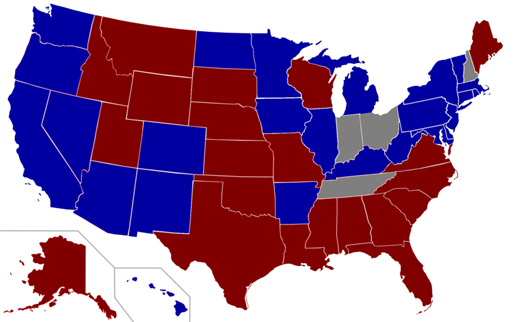
ST. LOUIS – The approximate cost of Medicaid expansion (part of the Affordable Care Act) and its larger impact remain widely debated. While it is common knowledge that Missouri did not participate in Medicaid expansion in 2013, it is less widely known how this decision impacts thousands of poor and working class Missourians. It can have life or death consequences.
In addition, in anticipation of the state’s participation in Medicaid expansion, the federal government eliminated Disproportionate Share Hospital (DSH) payments, funds that ease the financial burden hospitals face when they care for uninsured patients. In Missouri, this has taken a heavy toll on those hospitals that treat large numbers of uninsured patients.
Furthermore, when uninsured individuals are brought to the hospital they are screened for Medicaid eligibility. One question asked during this screening is: Will you be disabled for 13 months or longer? If the answer is “no” the patient does not qualify for Medicaid in Missouri.
Many patients and their families are impacted by this requirement. As a hospital social worker for trauma patients, I constantly see the emotional stress this causes.
Several months ago a young man was brought to the hospital following an assault. His primary family support was his mother – a single mother with two sons. She expressed how hard things were for her. She struggled to keep her family afloat.
Her employer did not offer time off, even though she had to care for her son. She had no one else to turn to. The young man was also working, but not full time and without health care benefits. The fact that he was expected to have a full recovery meant that he would not qualify for Medicaid coverage.
Earlier this year I worked with another young man who had been on his own since he was a teenager. He took great pride in being independent and in having a stable job. Tragically, he was shot one night while driving home from work. He suffered injuries to both femurs.
While he would recover, he would also need a lot of personal support when discharged, as he would be unable to put much weight on his legs. He told me he had no one to help him.
Obviously, he was at a high risk of returning to the hospital if he didn’t have proper care after being discharged. He might push himself too hard and fall at home, and he had an incision on his abdomen that could get infected if not watched.
I called numerous facilities for support. Even a week of therapy and nursing care would speed his recovery, I argued. In the end, I was unable to provide him any additional support. As with the other young man, he did not qualify for Medicaid under Missouri’s rules.
The DSH payments mentioned above do not support patients after they are discharged. So not only have these very important funds been eliminated due to Missouri Republicans’ refusal to expand Medicaid, but patients – after being discharged – are increasingly being left to fend for themselves.
While uninsured people will be treated if they are admitted into a hospital, they have very limited options for aftercare. Expanding Medicaid would provide aftercare options such as inpatient rehabilitation, skilled nursing care, or in-home nursing care, options both of my patients could have benefited from.
The above are real-life instances of people falling through the holes in our health care system. Perhaps not every hole can be filled by Medicaid expansion, but it would have made a world of difference to these two young men – as well as thousands of other Missourians.
Rachel Cramsey has served as a hospital social worker for two years, working with trauma patients and their families, liver transplant candidates, and liver/bile duct/gall bladder patients. Her role is primarily to provide support in safe discharge planning. She currently lives in St. Louis but is originally from Quincy, Ill.
Photo: This July 2013 map indicates which states are expanding Medicaid coverage in 2014. Blue indicates states that are expanding Medicaid, red indicates states that are not, and gray indicates states that were still debating expansion as of July 1, 2013. Wikimedia Commons

MOST POPULAR TODAY


Zionist organizations leading campaign to stop ceasefire resolutions in D.C. area

High Court essentially bans demonstrations, freedom of assembly in Deep South

Afghanistan’s socialist years: The promising future killed off by U.S. imperialism

Communist Karol Cariola elected president of Chile’s legislature






Comments